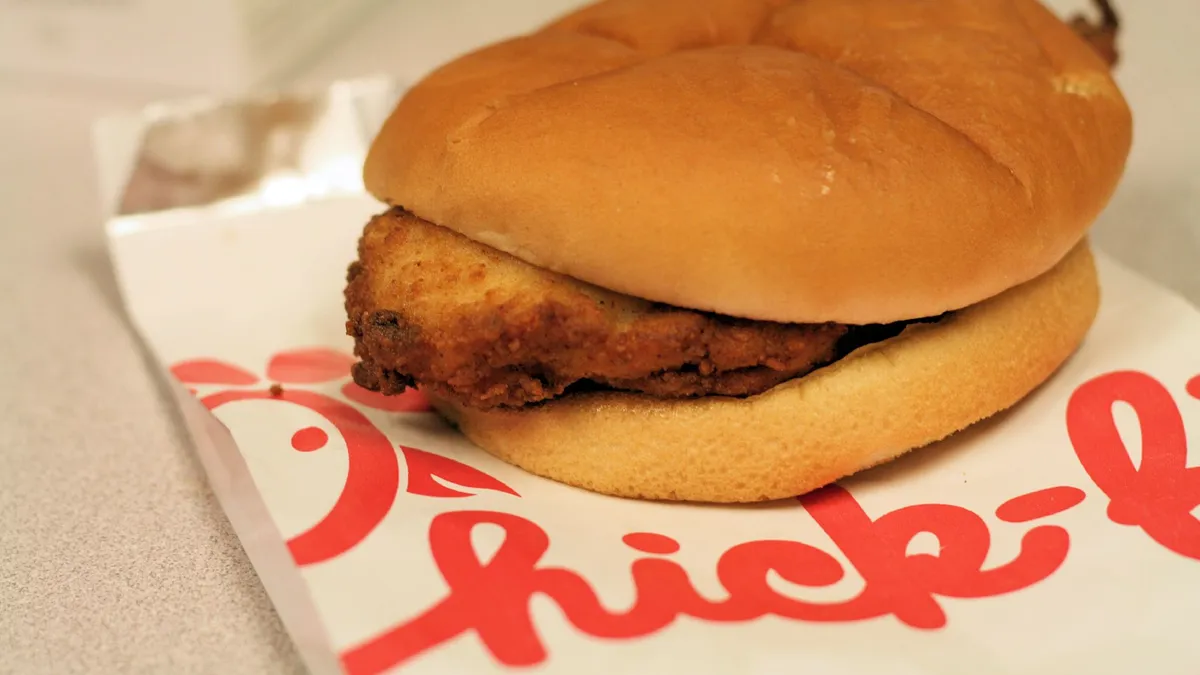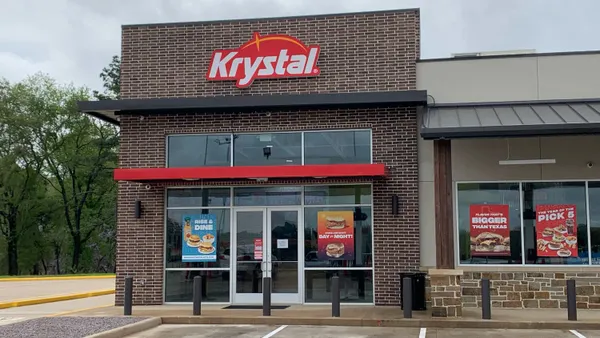UPDATE: April 7, 2021: McDonald's will pursue damages from Tyson Foods and Pilgrim's Pride over chicken price-fixing allegations, according to Insider. The website reported the fast-food chain wrote in an internal memo that it has been monitoring developments, including recent settlements reached in the on-going scandal.
Dive Brief:
- Chick-fil-A, one of the biggest fast-food chicken restaurant chains in the U.S., sued more than a dozen poultry producers, accusing them of violating antitrust law by colluding to artificially inflate prices after the chain announced in 2014 that it planned to serve antibiotic-free broiler chicken within the next five years. The company filed the suit on Friday in U.S. District Court for the Northern District of Illinois.
- Chick-fil-A said in the lawsuit poultry producers "possessed significant market power in the market for broilers and their conduct had actual anticompetitive effects." The chain said the actions resulted in an "amount of ascertainable damages to be established at trial." Defendants include Tyson Foods, Perdue Farms, Pilgrim’s Pride and Sanderson Farms.
- The restaurant chain is the latest to file a lawsuit against poultry producers for price-fixing in recent years. Major CPG companies, grocery chains and distributors — including Walmart and Sysco — have also filed civil suits against these processors with similar antitrust accusations.
Dive Insight:
After Chick-fil-A announced its plan to only offer chicken free of antibiotics about six years ago, the company claims in the suit that a number of poultry producers communicated over the phone and via text messages to share confidential bidding and pricing information. The chicken chain said it purchased billions of dollars worth of broiler chicken from the defendants and their co-conspirators at prices that were artificially inflated.
These accusations come amid the Department of Justice's investigation into other antitrust accusations raised against poultry producers. The DOJ's investigation into the poultry industry was originally disclosed last year when it intervened in a price-fixing lawsuit filed in 2016. This class-action lawsuit accuses chicken producers — including Pilgrim's Pride, Perdue Farms, Tyson Foods and Sanderson Farms — of conspiring to inflate broiler chicken prices. Chick-fil-A's lawsuit includes similar accusations, and the company said in its lawsuit that it was identified in the Justice Department's indictment as "QSR-5."
The intervention enabled federal attorneys to gather evidence and protect the grand jury probe, which has since resulted in indictments for executives and plea deals. Tyson Foods announced in June it was fully cooperating with the DOJ's investigation under the antitrust division's Corporate Leniency Program, which can allow a company that comes forward to avoid criminal convictions and fines. In October, Pilgrim’s Pride agreed to pay $110.5 million as part of a plea deal in the price-fixing investigation of the sale of broiler chicken products. Pilgrim's previous two CEOs were also among 10 officials from poultry producers who were indicted on price-fixing charges this year.
Although Chick-fil-A is one of the largest restaurant chains to file a lawsuit against poultry producers claiming price-fixing, it is not the only one. Cracker Barrel Old Country Store, White Castle and Golden Corral all filed lawsuits in October against the same major poultry processors, hoping to get damages for paying inflated poultry prices. Last year, Darden Restaurants also sued 18 chicken producers for the same reason. There could be additional lawsuits coming from other retailers, restaurants and suppliers who feel they were also subject to higher prices as the Justice Department continues its investigation.
Accusations of antitrust activity across the food industry have escalated in recent years, and some executives have been criminally charged. In June, former Bumble Bee Foods CEO Chris Lischewski was sentenced to more than three years in prison for conspiring to fix prices for canned tuna. And JBS recently reached a settlement agreement in a lawsuit that accuses the company of fixing pork prices for direct purchasers by conspiring with other meat processors. Analysts have said as the lawsuits and federal charges continue to build up, they could serve as a deterrent for any future antitrust action in the industry.















